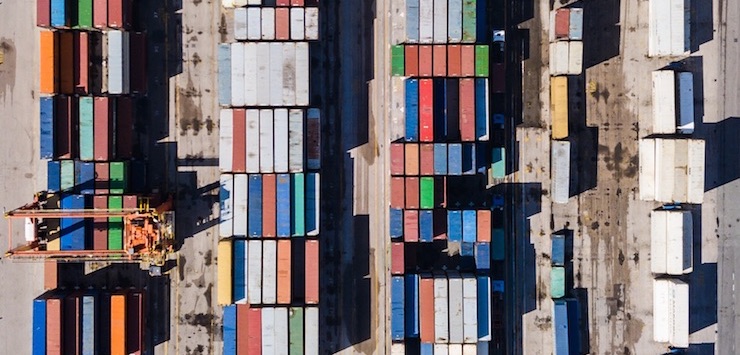Trade is booming – not only e-commerce recorded double-digit growth rates last year. Stationary retailers are highly satisfied with last year‘s Christmas business, as well. According to an estimate by Roland Berger, 330 million parcels were delivered to German households during the pre-Christmas season: an increase of ten percent compared to 2017.
The logistics industry benefits from the ongoing upturn. We spoke with Stephan Schiller, CEO of Hermes International, a division of Hermes Germany, about the challenges for 2019, current trends and global e-commerce.
Mr Schiller, you’re looking back on a busy year. Not only have you been appointed Managing Director of Hermes Europe, you are also CEO of the newly created Hermes International business unit which focuses on global e-commerce. What was particularly important to you as a provider of supply chain and full-service e-commerce solutions last year?
There have certainly been some changes over the past year. The Hermes Group has committed to international growth as a strategic goal. As a result, we have decided to bundle the handling of international products, including the corresponding organizational units, in the new “Hermes International” division.It was and is of particular importance that, in addition to the necessary internal changes, the customer and the market in particular are at the center of attention. We can see that the combination of our expertise in global e-commerce and end-customer logistics on the one hand, and supply chain solutions on the other hand, meets the growing customer demand.However, to map these complex processes, to ensure fast communication, and to speedily exchange data between customers and partners, we need to further digitize our infrastructure. Digitization was one of our priorities in the past year and will continue to be a high priority in the future.

Stephan Schiller, Managing Director of Hermes Europe & CEO of the newly created Hermes International.
Looking at the future: what are the plans of Hermes International for the year 2019? What are the priorities and what are your goals for the year ahead?
Our strategy is based on two strong pillars: On the one hand, we want to constantly improve our international portfolio and thus expand our business relationships with customers. But we also want to acquire new customers in our traditional markets in Europe. This is especially true for our European and global parcel and supply chain (freight) solutions.On the other hand, we want to unlock additional potential in large markets, especially China and the US. For this purpose, we check the alignment of our own resources locally as well as the synchronization of the latter with that of our partners.Particularly noteworthy in this context is our cooperation with SEKO Logistics. As part of a global partnership, we have taken over the existing business activities of SEKO in Germany and seek to focus on the resulting network. In this context, we talk about the entire spectrum of our activities: sea and air freight as well as international e-commerce and parcel solutions.
While digitization and cyber security were very dominant topics in 2017, last year’s focus was on blockchain, the implementation of the GDPR and the effects of global e-commerce. What themes do you think are particularly relevant to the industry in 2019?
Certainly all of the above. Companies must master the mix of legal and security requirements as well as business-related topics. Two questions will be decisive in the future: How do we protect our data? And how can we use data more efficiently for our own company? The answers and the processes involved will remain demanding and challenge us. However, I am sure that in the end they will be an important pillar of a successful business.
Many companies are already looking beyond national borders and want to access new sales markets. Europeans aspire to Asia, Americans to Europe. In your opinion, how important will internationalization be this year? What challenges do companies face in this context?
Internationalization has long been a reality and will continue to gain importance. However, the structure of internationalization will change. We need to keep that in mind.
If we offer a customer a shipping solution to the end customer to China today, the customer’s business can change at short notice: the need for customs, transport by ship or plane, warehouse and fullfilment in China arises. We want to support our customers and offer and implement all solutions from a single source.
Last year, you hoped for “logistics to be perceived as a valued process”. Have you already witnessed changes in that regard? What kind of development can you observe?
In commodity segments, appreciation does not come easily. I like to compare this with electricity from the socket: electricity must always be available and must not cost anything, and the supplier may be replaced if necessary. Only when the power fails, the actual value becomes clear.Container shipping is a good example here. Mutual appreciation exists when we work closely with our customers on solutions that allow the customer to expand their own business or reduce the complexity of the processes. These can be, for example, customs solutions or shipping options that almost level the customer-side effort for national and international activities.
What events do you look forward to in the new year? Further, is there something you are rather concerned about?
We are operating in a strongly growing market environment, which is very positive. If we manage to anticipate the future needs of our customers, it will be an exciting year. With concern we must probably look at the increasing separation tendencies of some important national economies – above all, the Brexit. Yet, the saying is true: logistics makes it possible!

